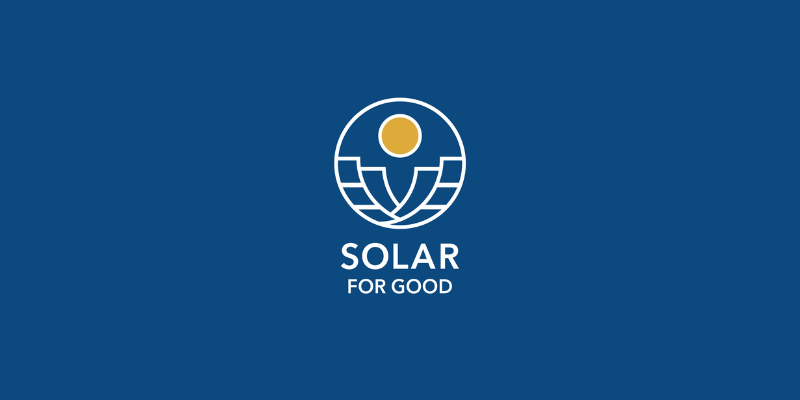
by Lauren Cohen | Nov 16, 2023 | Press Release, Solar, Solar for Good
More than $280,000 in cash awards and solar panel donations were awarded to 18 Wisconsin nonprofits as part of the 13th round of grant funding for Solar for Good. These awards will lead to the development of 1,600 kilowatts (kW) of solar electricity added to the Wisconsin electric mix and over $4.5 million in renewable energy investments.
Installing solar panels allows this diverse group of nonprofits to prioritize long-term fiscal responsibility, ensuring the sustainability of their institutions. St. Vincent de Paul will utilize their grant to install a 48.1-kW solar array on their new building, allowing them to redirect financial resources back into the core of their mission. West CAP, an organization committed to combatting poverty, will install a 29.76-kW solar array on its newest low-income housing initiative. This installation may potentially eradicate energy costs for their low-income residents.
“Through our poverty-fighting programs, we want to help prepare families for a world less dependent on fossil-fueled energy,” said Peter H. Kilde, West CAP Executive Director. “This funding will not only allow us to reduce carbon emissions and help our planet, but it will also ease the energy burden for low-income families so they can afford their housing for the long term. We appreciate the support from RENEW Wisconsin and the Couillard Foundation in helping nonprofit communities make this critical transition to solar.”
In the world of nonprofits, where financial resources are already stretched thin, the idea of adopting solar energy often feels out of reach due to the high upfront costs. Recognizing this financial obstacle, the Solar for Good program aims to alleviate a portion of that financial burden.
“While our grant does not cover the entire cost of a solar installation, nonprofits receiving our support find themselves in a stronger position to secure additional funding,” said Lauren Cohen, manager of the Solar for Good program. “A Solar for Good grant acts as a valuable leveraging point, opening doors to further support for their solar projects.”
Integrating solar power into St. Vincent de Paul’s operations is a logical step, considering their existing emphasis on sustainability. Operating seven thrift stores and a processing center, they divert thousands of pounds of goods from landfills each month, promoting a green solution for excess items and integrating solar energy to align with their sustainability initiatives.
“We’re grateful to receive a Solar for Good grant to support the cost of solar panels for our new building,” said Julie Bennett, CEO and Executive Director of St. Vincent de Paul Madison. “The Society of St. Vincent de Paul is proud to increase our sustainable efforts in Dane County. Solar panels are a natural accompaniment to the ‘reduce, reuse, recycle’ effort that is fundamental to our seven St. Vinny’s Thrift Stores.”
Since its inception in 2017, Solar for Good has awarded grants to more than 200 Wisconsin nonprofits, resulting in over $16.7 million in clean energy investments across the state. These 18 organizations join a diverse community of nonprofits utilizing solar energy. Solar for Good is thrilled to contribute to their journeys towards enhanced energy efficiency and independence.
The following organizations have been offered Fall 2023 Solar for Good grants to install new solar energy systems:
Agrace Hospice Care – senior living, Madison
Art Intersection MKE – community service, Milwaukee
Aurora Medical Center Sheboygan County – healthcare, Sheboygan
Catholic Ecology Center – education, Neosho
Hayward Sports Center and Community Park – recreation, Hayward
Immanuel Lutheran Church – religious, Viroqua
Little Turtles Playhouse – community service, Beloit
Milwaukee Institute of Art & Design – education, Milwaukee
Monona United Methodist Church – religious, Monona
Ozaukee Nonprofit Center – community service, Grafton
Pittsville Fire Company – community service, Pittsville
St. Luke’s Episcopal Church – religious, Milwaukee
St. Paul’s Lutheran Church – religious, Onalaska
Sugar Creek Lutheran Church – religious, Elkhorn
St. Vincent de Paul – community service, Madison
Stoughton United Methodist Church – religious, Stoughton
West Central Wisconsin Community Action Agency – affordable housing, Clayton
*One organization has asked to remain anonymous at this time.
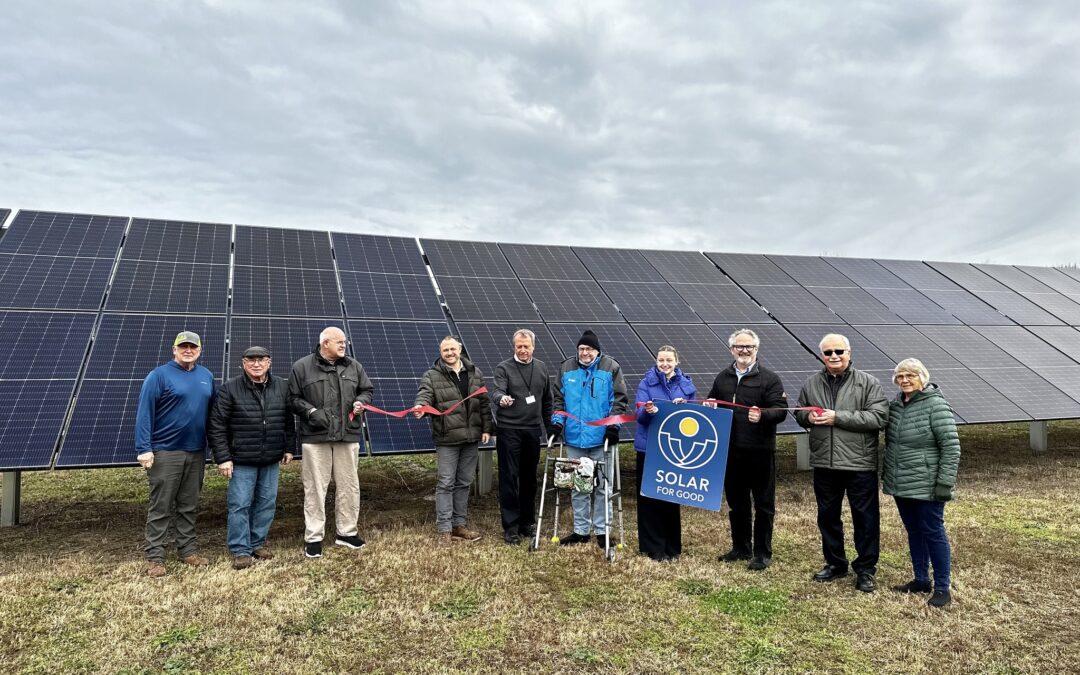
by Lauren Cohen | Nov 8, 2023 | Solar, Solar for Good
On Wednesday, November 2, Pine Valley Community Village, a prominent skilled healthcare, rehabilitation, and assisted living facility located in Richland County, celebrated a significant milestone. The organization completed the installation of its 336-panel solar array.
Pine Valley Community Village marked the successful completion of its solar array project with a solar dedication and ribbon-cutting ceremony. The array is expected to generate more than 5 million kilowatt-hours within the first 25 years and over a half million dollars of savings for the nursing and rehab facility.
“Having solar now on our campus to help offset those electrical costs is significant. It is the perfect complement to our Geothermal system,” said Tom Rislow, Pine Valley Community Village’s Administrator.
Pine Valley’s decision to go solar was driven by its cost-saving benefits and a desire to reduce the organization’s environmental footprint. In 2016, the facility opted for a geothermal heating and cooling system, which was effective but raised electricity costs due to increased usage. The solar system, installed by Solar Connections, now complements their geothermal system, reducing their dependence on traditional electricity sources and potentially saving up to $18,000 annually.
During the process, Pine Valley benefited from the expertise of Legacy Solar Co-op, a cooperative providing solar and energy efficiency services throughout Wisconsin.
“Legacy Solar Co-op [LSC] started working with Pine Valley Community Village [PVCV] in Richland Center, Wisconsin, back in early 2022 and helped them pursue the best-fit size and location for placing a ground-mounted solar array on Richland County property to generate roughly 17% of their electricity use per year on-site,” said Kurt Reinhold, President, and CEO of Legacy Solar Co-op. “LSC is proud to have helped PVCV succeed in finishing this project!”
Pine Valley Community Village’s commitment to sustainability and clean energy received a significant boost through the support of generous donors and the Solar for Good program. Key supporters Ray & Sylvia Schmitz and Bob Simpson played a vital role in the project’s fundraising plan. Pine Valley Community Village also received a Solar for Good grant, providing them with 150 of the 336 panels necessary for the solar array.
“It couldn’t have been possible without several contributions,” said Rislow. “Starting with our qualifying to receive 150 solar panels free through the Solar for Good program, getting a Focus on Energy grant, receiving generous donations from two local businessmen, and the likelihood of receiving additional funds through a program within the Inflation Reduction Act.”
Pine Valley Community Village’s commitment to clean energy reflects its values and showcases Richland County’s dedication to environmentally responsible operations. The project not only supports sustainability but is also expected to substantially reduce the facility’s electrical expenses for years to come.
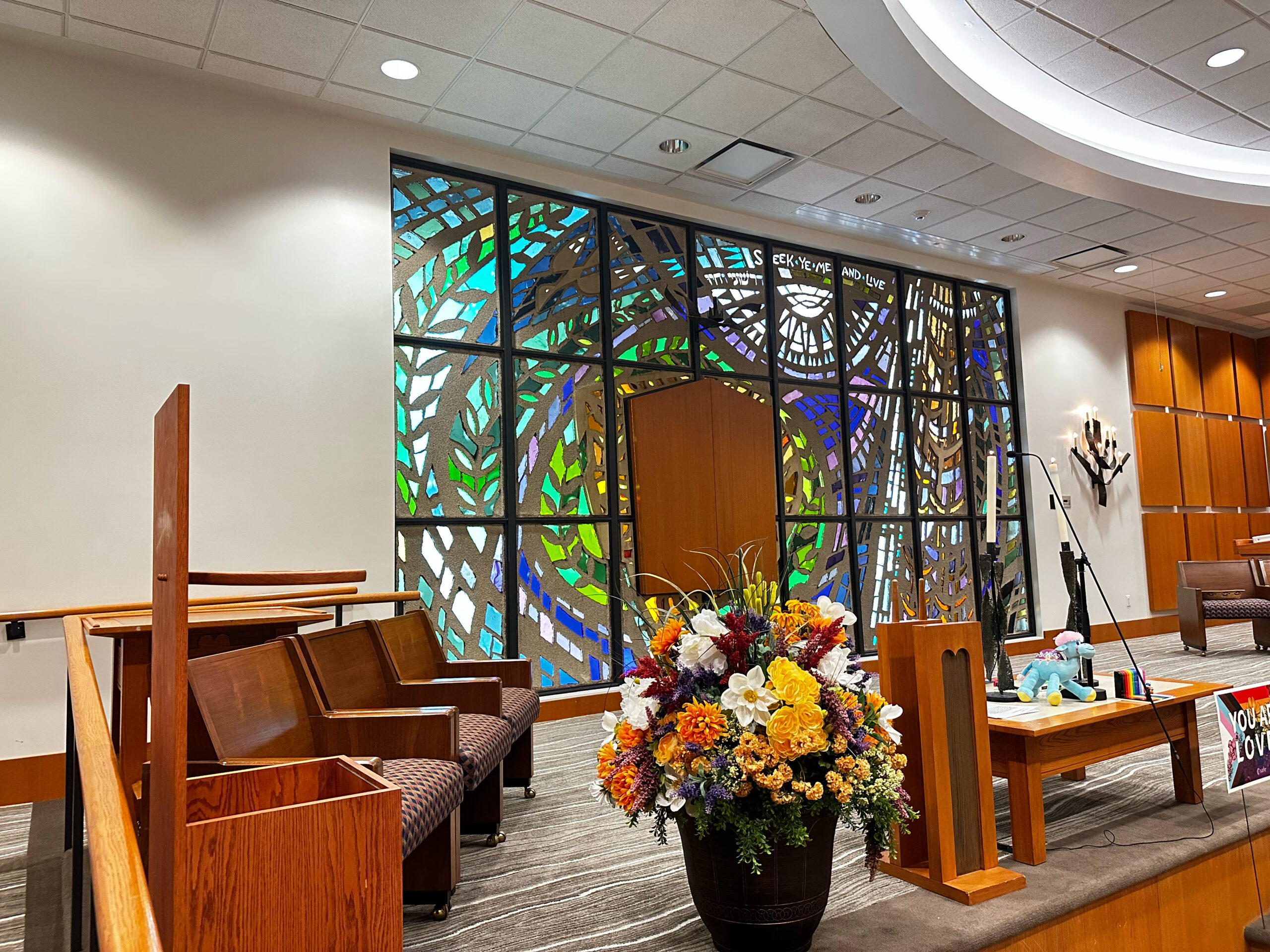
by Lauren Cohen | Oct 27, 2023 | Renewables, Solar, Solar for Good
On Friday, October 13, Temple Beth El, a progressive Reform synagogue located in Madison, set a remarkable example by installing a 102-kilowatt solar array. Full Spectrum Solar installed the array, which is expected to save the synagogue approximately $12,000 annually.
The array will offset 31.5% of their projected annual energy consumption, contributing significantly to their sustainability goals, which are aligned with aspects of their overall mission. For more than 84 years, Temple Beth El has remained dedicated to its vision to create and sustain a vibrant, inclusive, and engaged community that connects individuals from all walks of Reform Jewish.
Affiliated with the Union for Reform Judaism, Temple Beth is the sole Reform Jewish congregation in Madison, providing a welcoming haven for Jewish people to come together and fulfill their spiritual, educational, ethical, social, and emotional needs and expectations.
The decision to install solar panels was not one that was taken lightly. In 2018, the temple established a task force to review investment priorities for its 75-year-old building. Recognizing that their roof offered an ideal space for solar panels, they made necessary improvements to support the longevity of the installation. This solar initiative serves two crucial goals for their community: reducing their carbon footprint and reliance on fossil fuels and lowering their energy costs.
The success of this solar initiative was made possible through multiple funding sources. Temple Beth El was a grant recipient of the Solar for Good program, which supplied them with half of the solar panels required for the project. Additional financial assistance came from the Goodman Foundation, which helped offset the costs of the remaining solar panels. With the passage of the Inflation Reduction Act’s Elective Pay provision, the temple will receive a 30% refund from the federal government, significantly reducing the overall project cost.
The completion of Temple Beth El’s solar array is a testament to their commitment to both environmental sustainability and fiscal responsibility. By harnessing the power of the sun, they are taking strides to reduce their carbon footprint and inspire their community to follow suit. This initiative not only aligns with their vision of inclusivity but also paves the way for a greener and more energy-efficient future.
Temple Beth El’s solar journey serves as a reminder of the importance of collective action to electrify Wisconsin’s energy mix and transition away from fossil fuels. With its newly installed solar array, the organization has not only reduced its carbon footprint but also set a compelling example for others to follow.
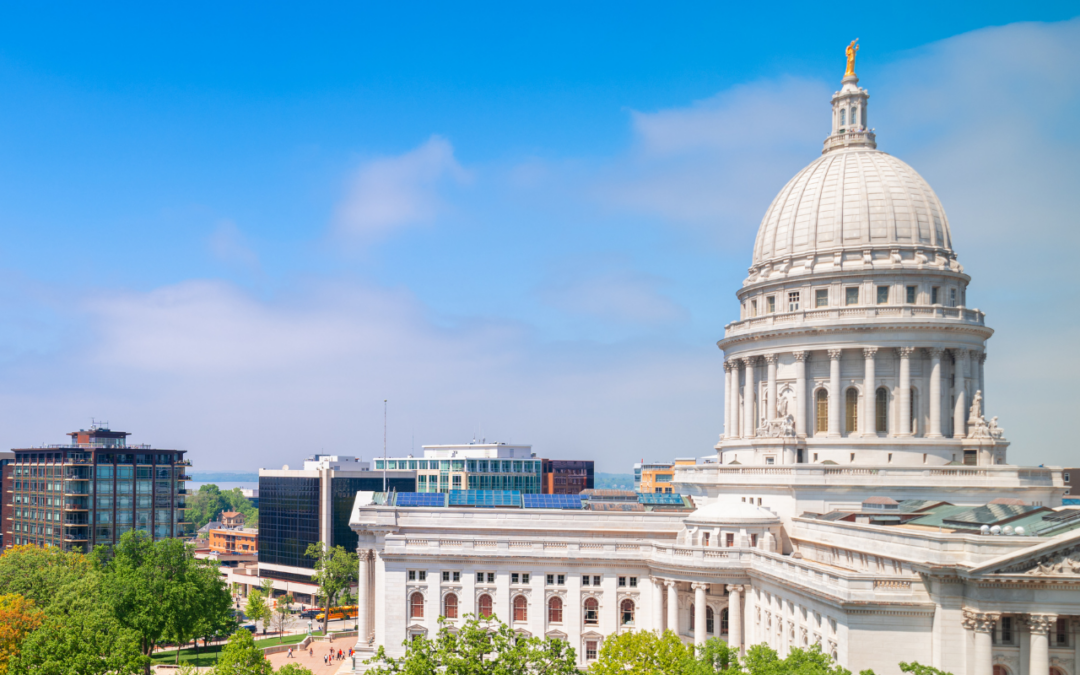
by Beata Wierzba | Oct 19, 2023 | Advocacy, Community Solar, Electric Vehicles, Legislative Watchlist, Local Government, Policy, Solar
RENEW Wisconsin remains focused on net metering and the two rate cases before the Public Service Commission of Wisconsin (PSCW). The comment periods for both cases have closed and we can expect a decision from the PSCW in early November. In the meantime, we are continuing our work to support EV charging infrastructure while also pursuing bills that would allow Wisconsin residents to participate in community solar projects.
Net Metering
In most states, when you generate electricity from solar panels on your property, you get a credit for the energy you produce, reducing your electricity purchases from the utility and some compensation for sending any excess electricity from your system back to the grid. The Public Service Commission of Wisconsin (PSCW) is nearing a decision in two net metering rate cases.
In the Alliant Energy rate case, RENEW and Alliant have agreed to preserve net metering for two years and have created a clear pathway for future rooftop solar installations. At the end of the two-year period, new Alliant solar customers will shift away from net metering and into Power Partnership, a proposal that will support the sustainability of the solar industry. The PSCW will determine if this agreement is the best path forward when they deliver their decision in November.
RENEW still believes that net metering is the best policy for Wisconsin’s current solar industry, and we remain opposed to MGE’s proposal. We look forward to a positive outcome in both cases.
- RENEW staff has testified in both rate cases before the PSCW.
- RENEW has encouraged and empowered our members and the public to support net metering through the public comments process.
- RENEW staff is engaged with state legislators, making them aware of how these rate cases will affect their constituents and the solar industry in general.
Electric Vehicle Charging
Better access to charging stations to support the electric vehicle industry is a top priority for RENEW. We continue to support efforts to remove some of the barriers in Wisconsin. Current state law limits private companies’ ability to build charging stations by only allowing electric utilities to sell electricity to the public.
- RENEW anticipates legislation (likely led by Sen. Howard Marklein) to be introduced this fall to remove some of these barriers.
- RENEW is hoping the proposed legislation would allow non-utilities to provide electricity at charging stations by using the national standard of charging by the kilowatt hour rather than by the time it takes to charge.
- RENEW staff have been in regular communication with various interested parties and we hope to see movement on this proposal soon.
- To support these efforts, we also have preliminary plans to host educational, lobbying, and test-driving electric vehicle events through the fall.
Community Solar
Wisconsin state law limits solar installations to larger utility-built projects and smaller rooftop installations on individual homes or businesses. This leaves a gap in the options available for some Wisconsinites. Allowing community-based projects for individuals to participate in solar energy generation even if they do not own the building or have adequate sun exposure would create more equity as it relates to solar generation.
RENEW Wisconsin is part of a coalition of groups that support community solar projects, along with two bills introduced earlier this year that would allow Wisconsin residents to participate in community solar projects. SB 226 was authored by Sen. Duey Stroebel, and AB 258 was authored by Rep. Scott Krug.
- RENEW is encouraging the chairman of the committee, Sen. Julian Bradley, to schedule a hearing in the fall in the Senate Committee on Utilities & Technology.
- More than 30 organizations are listed as lobbyists on the proposal, with an almost equal number for and against.
- Utility groups have strongly opposed the bills.
- Supporters along with RENEW include the Alliance of WI Retailers, NAIOP Commercial Real Estate Association, League of WI Municipalities, WI Property Taxpayer Association, and Fieldworks Power. New supporters continue to join the effort.
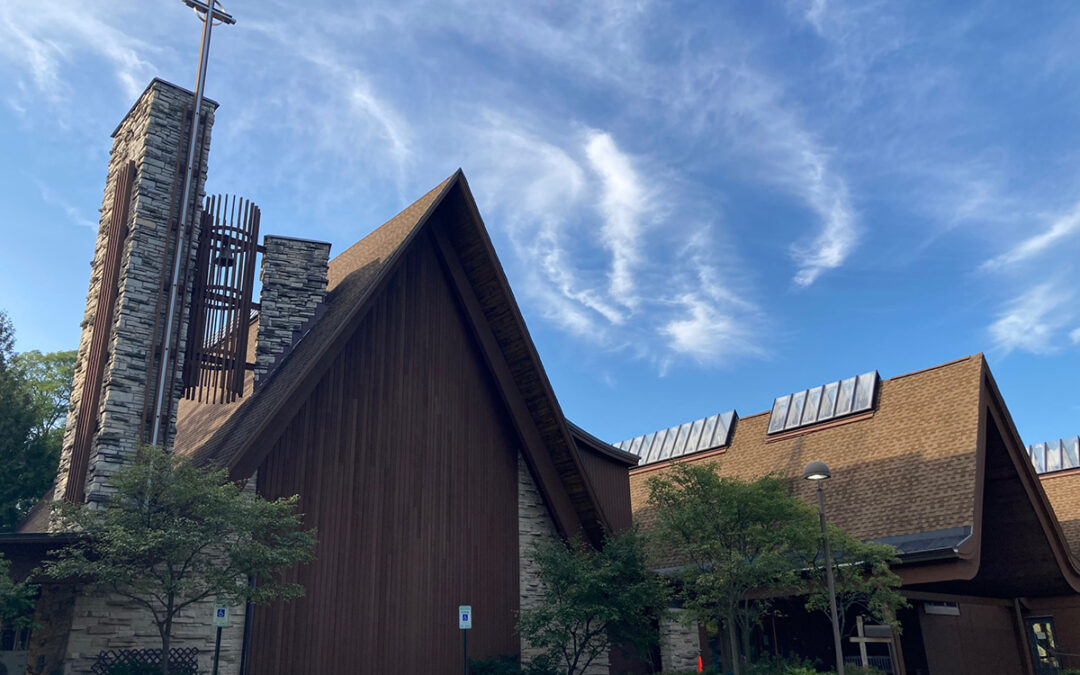
by Lauren Cohen | Sep 28, 2023 | Renewables, Solar, Solar for Good
Located in Madison, Wisconsin, St. Dunstan’s Episcopal Church, founded in 1958, has embarked on a notable journey towards sustainability and environmental responsibility. This warm and inclusive congregation, comprising approximately 200 households, places a strong emphasis on creation care, welcome for all, and the full inclusion of LGBTQIA+ individuals. Their recent venture into renewable energy underscores their commitment to their faith and environmental stewardship.
St. Dunstan’s has long been aware of its carbon footprint. In 2016, the church established a Creation Care mission statement, outlining its commitment to nurturing a reverence for the natural world, reducing its ecological impact, and broadening its involvement in environmental initiatives. To this end, the church had previously sourced all its energy through MGE’s shared solar and green energy programs. However, with mounting concerns about climate change, the congregation sought to take more direct action.
In the fall of 2022, St. Dunstan’s Episcopal Church received a grant from RENEW Wisconsin’s Solar for Good program. This initiative supports nonprofits in the state in installing solar arrays, marking the inception of an ambitious effort to generate renewable energy on-site. This decision aligned with the church’s pre-existing commitment to environmental stewardship.
The resulting 29.7-kilowatt solar array, installed by Full Spectrum Solar, consists of 55 panels and is anticipated to offset 75 percent of their estimated annual energy consumption.
Financial backing for the project was a collaborative effort. St. Dunstan’s secured a generous gift from a donor, further complemented by pledges from congregation members and friends. Additional financial support was provided through grants and incentives, including the MadiSUN Backyard Solar grant and Focus on Energy support. Enthusiasm surrounding the project sparked additional donations from congregation members.
Beyond achieving self-sufficiency through energy generation, St. Dunstan’s remains firmly committed to community service and outreach. The solar project aligns harmoniously with their mission of social justice and community support. As energy costs rise and budgetary pressures mount, the solar project is anticipated to alleviate some of these financial burdens, enabling the church to reallocate funds back into its mission.
In the summer of 2023, St. Dunstan’s hosted a solar dedication event. This event served as an opportunity to celebrate and promote their 29.7-kilowatt solar array to their congregation and the wider community. It included information sessions on the economic and environmental benefits of solar energy, as well as details regarding financial incentives for installing a solar system.
St. Dunstan’s Episcopal Church’s commitment to renewable energy is a shining example of how faith-based organizations can lead by example in environmental stewardship while simultaneously nurturing a sense of community, social justice, and environmental consciousness. Their dedication to their values and the environment serves as a compelling illustration of the positive impact such initiatives can have on local communities and the broader world.
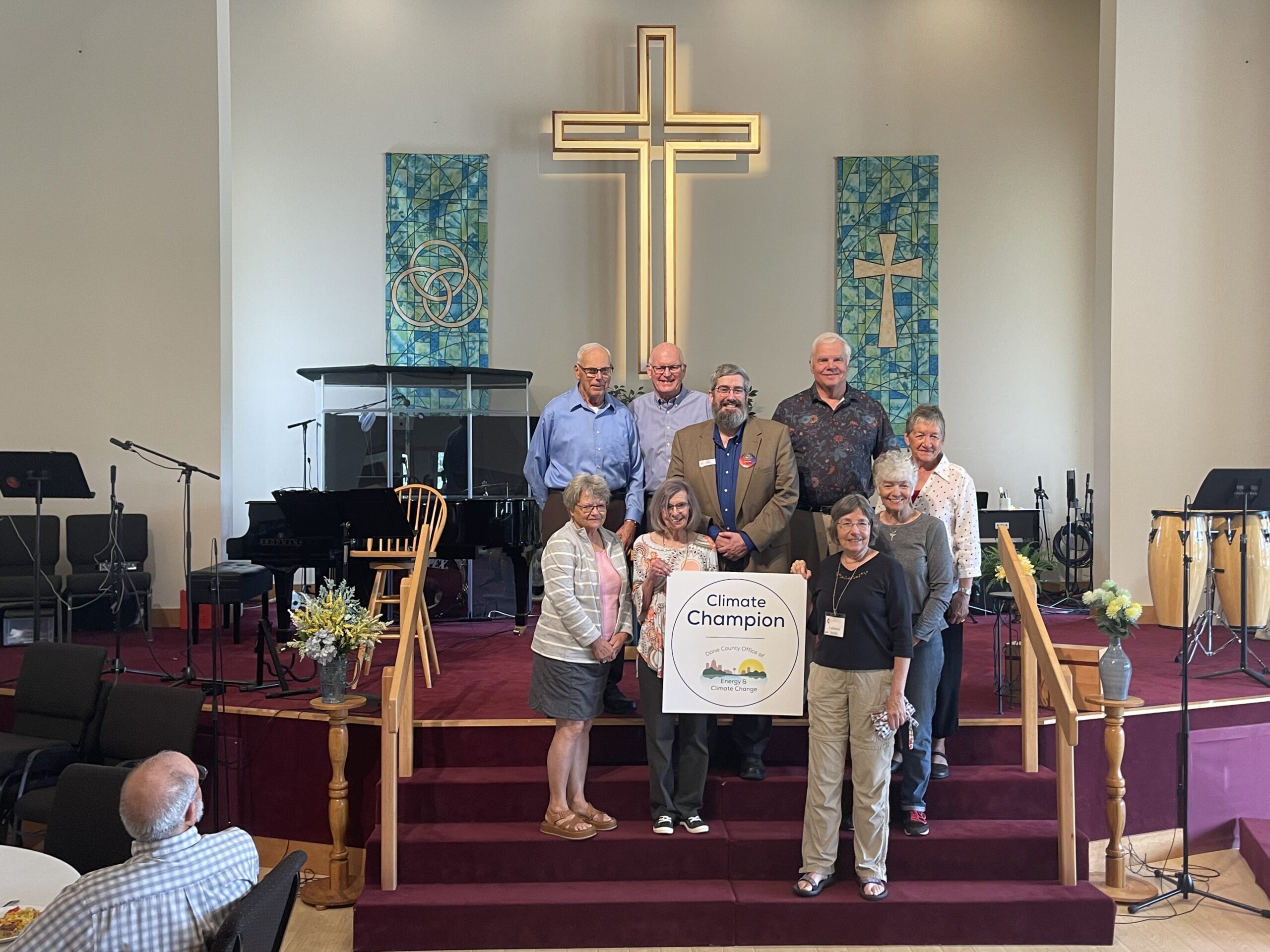
by Lauren Cohen | Sep 28, 2023 | Renewables, Solar, Solar for Good
On Sunday, September 24, People’s United Methodist Church (PUMC) hosted a dedication ceremony to celebrate the completion of its solar array. The solar project is substantial, with an installed capacity of 70.3 kW, poised to offset approximately 64 percent of the church’s power consumption. In addition, a 7.56-kW installation at the church house is expected to generate 10,000 kWh annually, covering 94 percent of its current power usage.
PUMC’s commitment to sustainability extends beyond solar installations. They were named a 2023 Climate Champion by the Dane County Office of Energy and Climate Change for their consistent efforts.
“Climate justice is social justice, and our commitment will do more for people worldwide than almost any other effort we can support at this time,” said representatives from the church. “Together, we are doing a powerful ministry for our world today and for future generations.”
Funding for this solar project was secured from various sources, including a grant from Solar for Good, financial support from Focus on Energy, and a 30% elective pay from the federal government under the Inflation Reduction Act. A vital component of their fundraising efforts was a capital campaign, fortified by a pledge from an internal donor.
Established in 1845, PUMC has been a steadfast presence in their community. PUMC is a Christian community of faith open to all people, focused on issues such as racial inequality, food security, and environmental justice.
PUMC’s journey in environmental stewardship began with small-scale initiatives; however, their ambitions for sustainability expanded in 2019 when they initiated plans for a solar installation. Unfortunately, the COVID-19 pandemic introduced logistical challenges and financial uncertainties that momentarily halted progress.
Nevertheless, their objective remained unchanged — commit to environmental stewardship and reduce their carbon footprint. They also sought to enhance community engagement by participating in the Midwest Solar group buy program for Dane County in the spring of 2023 as part of their solar project.
“Midwest Solar Power was happy to work with the Peoples United Methodist Church and Solar For Good to bring solar to the church and parsonage,” said Alarik Roselund, Partner and Co-founder of Midwest Solar Power. Established in 2009, Midwest Solar Power is a Madison-based solar installation company dedicated to providing specialized and high-quality work to its clients.
Other notable works include participating in a Solar group buy, implementing recycling initiatives, hosting an annual Green Fair, and exploring the possibility of adding heat pumps for the church office and preschool.
PUMC’s solar project goes beyond a technological upgrade; it exemplifies its commitment to environmental preservation and carbon footprint reduction. This effort guarantees not only long-term reductions in utility costs but also allocates substantial financial resources that can be redirected toward their other critical social justice initiatives. PUMC’s journey toward environmental stewardship stands as a compelling example for other nonprofit organizations and community groups, showing how sustainable practices can foster positive change.






